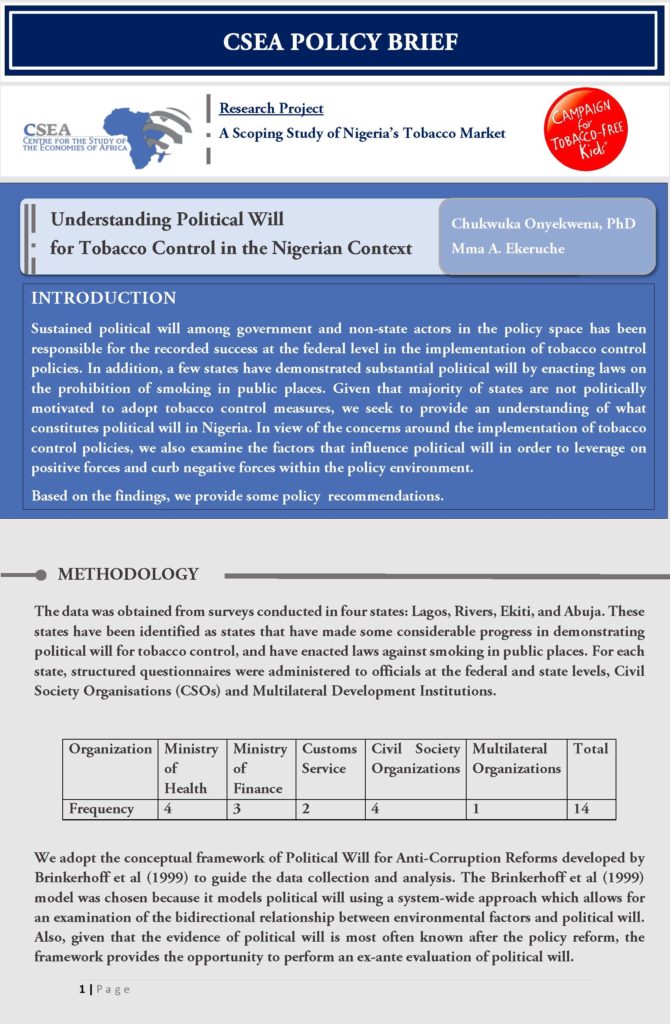Sustained political will among government and non-state actors in the policy space has been responsible for the recorded success at the federal level in the implementation of tobacco control policies. In addition, a few states have demonstrated substantial political will by enacting laws on the prohibition of smoking in public places. Given that majority of states are not politically motivated to adopt tobacco control measures, we seek to provide an understanding of what constitutes political will in Nigeria. In view of the concerns around the implementation of tobacco control policies, we also examine the factors that influence political will in order to leverage on positive forces and curb negative forces within the policy environment.
Policy Brief & Alerts

January 25, 2019
Understanding Political Will for Tobacco Control in the Nigerian Context
Sustained political will among government and non-state actors in the policy space has been responsible for the recorded success at the federal level in the implementation of tobacco control policies. In addition, a few states have demonstrated substantial political will by enacting laws on the prohibition of smoking in public places. Given that majority of […]
Read →
Related
Nigeria Economic Update (Issue 44)
Latest
Doing Business report by the World Bank ranks Nigeria as one of the top 10 economies
that showed notable improvements in doing business in 2016/2017. Precisely, the
report which presents quantitative indicators on business regulation compared
across 190 economies and ranked Nigeria 145th - up by 24 positions from
the previous report ranking, to reach its highest rank since 2013. This may not
be unexpected, given that it is consequent upon various business environment
reforms in 2016. Particularly, the Presidential Enabling Business Environment
Council (PEBEC) set up in 2016 enacted 31 reforms to improve
business(such as improving credit to small and medium-size
businesses) all of were enacted into law in May 2017.


